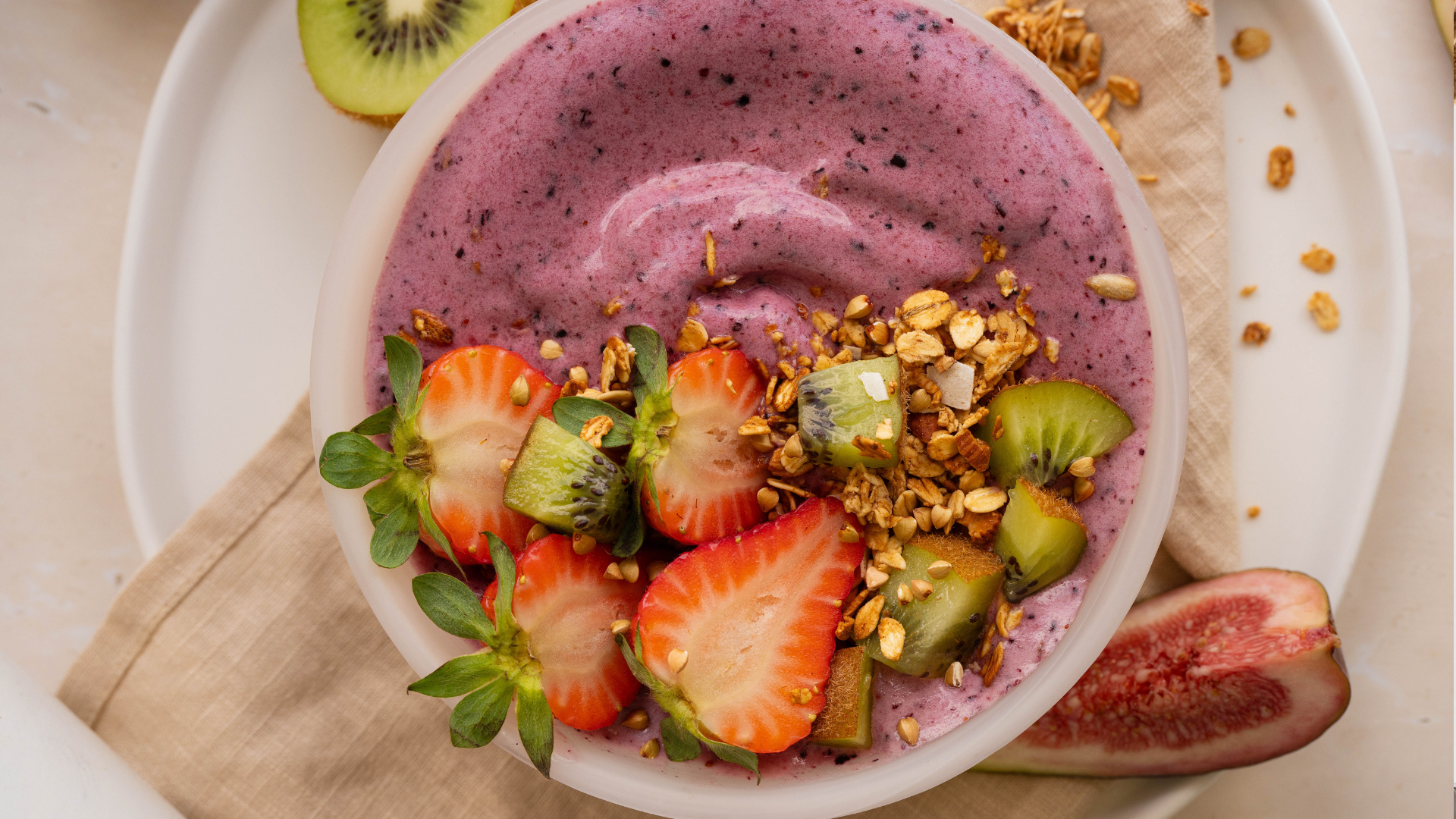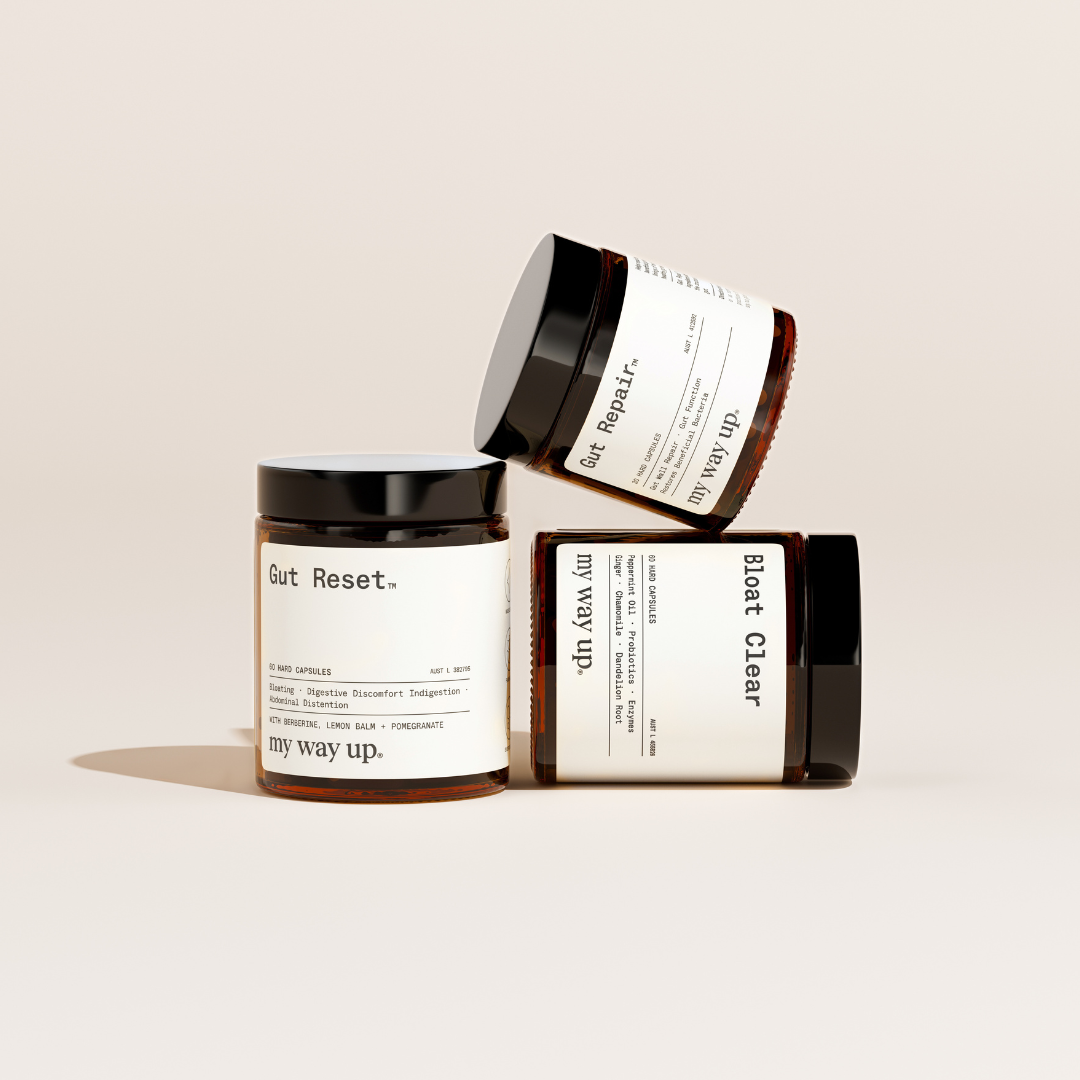Your gut is home to trillions of microbes which actively produce compounds that influence your brain and mood [3].
Through the vagus nerve: This “information superhighway” runs between your gut and brain. Signals from gut microbes can stimulate the vagus nerve and directly affect brain regions involved in mood and stress regulation [1].
Through microbial metabolites: Gut bacteria produce short-chain fatty acids (like butyrate) and other compounds that help regulate inflammation and support healthy brain function [2].
Through tryptophan availability: Gut microbes influence how much tryptophan (the building block of serotonin) reaches the brain, where it can be converted into mood-regulating neurotransmitters [4].
Through immune balance: When the gut is out of balance, it can contribute to ongoing immune activation and inflammation, which may affect brain signaling and is often associated with low mood, brain fog, and fatigue. A healthy gut microbiome helps regulate immune responses and plays a key role in supporting healthy brain function [1,2].
The takeaway? A healthy, diverse gut microbiome is one of the most powerful (and underrated) ways to support mental wellbeing.
How to Strengthen the Gut–Brain Connection
Building a balanced microbiome isn’t about quick fixes - it’s about daily habits that feed, protect, and restore your gut ecosystem. That means eating a variety of whole foods, getting enough fibre, cutting back on ultra-processed foods, and supporting your gut with targeted nutrients [5].
Where Daily Gut™ fits in
This is why we created Daily Gut™, a complete, multi-action gut health formula designed not just to support gut function, but also to support mood and the gut–brain axis.
It combines:
- Prebiotics (Sunfiber® and Fibergum™) to feed beneficial microbes.
- Probiotics (Lactospore® bacillus coagulans and Saccharomyces boulardii) to reinforce balance in the microbiome.
- Polyphenols (from pomegranate, green tea, wild blueberry, and blue spirulina) to nourish the microbiome, reduce oxidative stress and calm inflammation [5].
- Botanicals (aloe vera and marshmallow root) to soothe and protect the gut lining.
- Amino acids (L-glutamine and L-glycine) to fuel repair of the gut barrier.
All in one easy daily scoop.
Because when your gut thrives, your brain does too.







